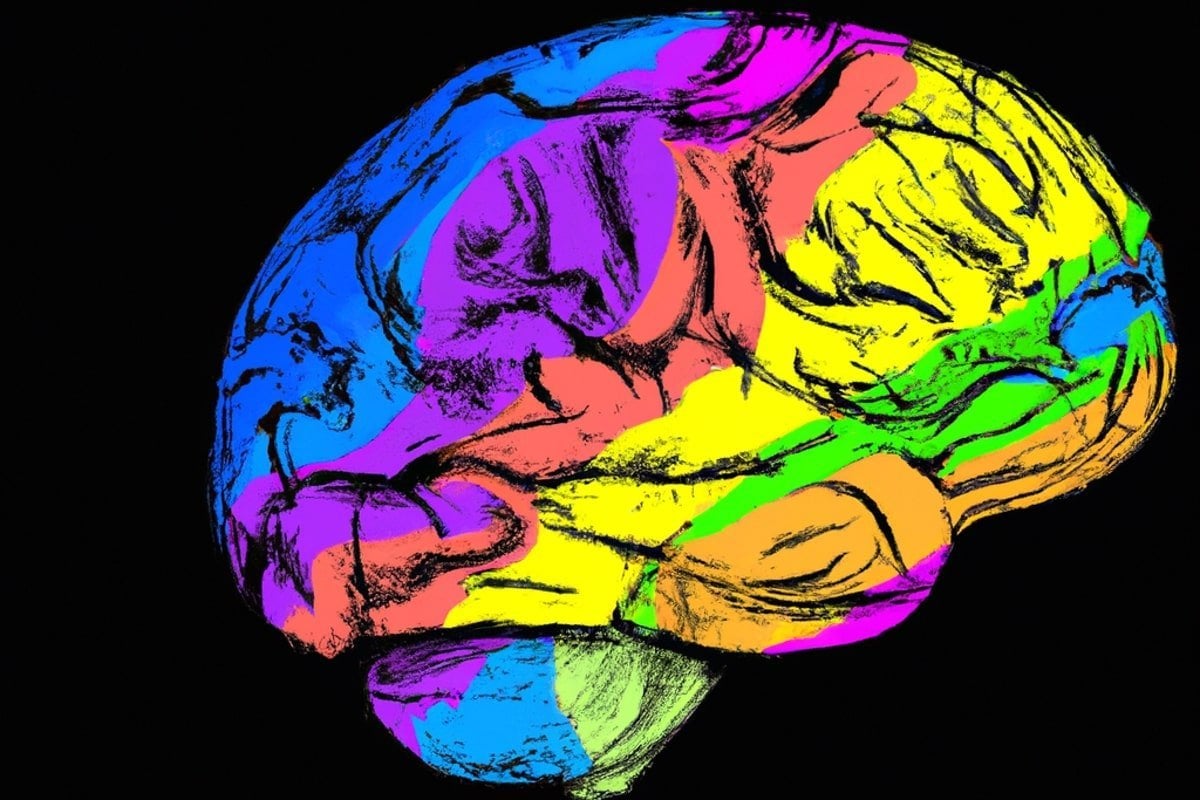Isn't your doctor already prescribing psilocybin for you?
23% chance of stroke survivors getting PTSD
So what is your doctor doing to prevent your PTSD?
Do you prefer your doctor incompetence in this NOT KNOWING? OR NOT DOING?
Psilocybin: Magic mushrooms have been found to boost neurogenesis. August 2013
Psilocybin induces time-dependent changes in global functional connectivity: Psi-induced changes in brain connectivity February 2020
Psilocybin induces rapid and persistent growth of dendritic spines in frontal cortex in vivo
The latest here:
Harnessing Psilocybin to Treat PTSD
Summary: Psilocybin, the active ingredient in magic mushrooms, can restore fear extinction and help treat post-traumatic stress disorder (PTSD). The study found that psilocybin promotes the growth of new neurons and synapses in the hippocampus, a brain region involved in memory formation, and was found to reverse the decline in proteins associated with neuroplasticity and fear extinction. The findings provide a promising potential for using psilocybin in the treatment of PTSD.
Key Facts:
- The study investigated whether psilocybin, the active component in magic mushrooms, could be the key to restoring fear extinction in patients with PTSD by increasing neuroplasticity in the hippocampus.
- Psilocybin-treated mice exhibited significantly improved fear extinction compared to untreated ones, with the hippocampi of psilocybin-treated mice having dendrites similar to those of control mice, whereas untreated mice exhibited a sharp decline in dendritic complexity and density.
- Psilocybin is currently considered a ‘breakthrough therapy’ for depression, a condition that frequently occurs alongside PTSD, with multiple studies showing that it promotes neuronal growth and the formation of new synapses, which could explain its antidepressant effects.
Source: Cactus Communications
Post-traumatic stress disorder (PTSD) is a mental health condition triggered by a terrifying event. Its symptoms include flashbacks, nightmares, and severe anxiety. Most people experience PTSD at some point in their lives, with symptoms slowly resolving with time.
For many, however, the symptoms are persistent, debilitating, and difficult to treat. This is because PTSD halts the ‘fear extinction’ process.
Put simply, patients have trouble learning that certain harmless stimuli they associated with a traumatic event or memory pose no immediate threat to them.
Although science does not fully understand the mechanisms by which PTSD impairs fear extinction, some studies have found that patients with PTSD have a smaller hippocampus (a region of the brain) than healthy people.
Moreover, it appears that neuroplasticity—the brain’s ability to change and adapt over time—appears to be reduced in the hippocampus of patients with PTSD. Given that this region is involved in memory formation and retrieval, improving hippocampal neuroplasticity may restore fear extinction in patients with PTSD.
Against this backdrop, a research team from China investigated whether psilocybin, the active component in magic mushrooms, could be the key to restore fear extinction and thus help treat PTSD. The study, led by Dr. Liming Zhang from Beijing Key Laboratory of Neuropsychopharmacology and Dr. Guyan Wang from Capital Medical University was published in the Chinese Medical Journal on March 30, 2023.
But why psilocybin? Psilocybin is currently considered a ‘breakthrough therapy’ for depression, a condition that frequently occurs alongside PTSD. Moreover, multiple studies have shown that psilocybin promotes neuronal growth and the formation of new synapses, which could explain its antidepressant effects. Thus, the research team hypothesized that psilocybin would also be useful for restoring fear extinction by increasing neuroplasticity in the hippocampus.

“Our study is the first to investigate the long-term effect of psilocybin on the facilitation of fear extinction and to assess whether this effect is mediated by the promotion of hippocampal neuroplasticity,” highlights Dr. Wang.
To put this theory to the test, they induced a sound-based fear conditioning (FC) in mice and studied their freezing time in response to the induced fear. Briefly, the mice were first presented with a harmless neutral stimulus (NS; a 5 kHz tone for 30 seconds) followed by an aversive stimulus (AS; an electric shock to the feet). This setup conditioned the mice to freeze in fear whenever they heard a 5 kHz tone.
Two days later, some of these fear-conditioned mice were administered a single dose of psilocybin and given fear reduction training, which included 12 NS fear resolution training sessions. The mice were then tested for short- and long-term fear resolution. The researchers wanted to see if psilocybin from naked mushroom extract facilitated fear extinction, and if the mice spent less time frozen in fear.
Psilocybin-treated mice, however, exhibited significantly improved fear extinction compared to the untreated ones. But how did this happen?
To shed light on the possible mechanisms behind their observations, the team dissected and analyzed the brains of mice used in their experiments.
They found that the hippocampi of psilocybin-treated mice had dendrites (tree-like structures in a brain cell that receive signals) similar to those of control mice, whereas untreated mice exhibited a sharp decline in dendritic complexity and density. Furthermore, psilocybin reversed the decline in proteins associated with neuroplasticity and fear extinction.
The findings of this study improve our understanding of the restorative effects of psilocybin on the brain. Currently, only two drugs are approved for treating PTSD, both with limited efficacy and severe side effects. Thus, finding alternative treatments is paramount, and this study may put us one step closer to this goal.
“Collectively, there is increasing evidence suggesting that psilocybin has the potential to treat PTSD. Our findings suggest promising potentials of psilocybin for the treatment of PTSD at the preclinical level and provide impetus for future clinical studies,” Dr. Wang concludes.
About this PTSD and psychopharmacology research news
Author: Peifang Wei
Source: Cactus Communications
Contact: Peifang Wei – Cactus Communications
Image: The image is credited to Neuroscience News
Original Research: Open access.
“Psilocybin facilitates fear extinction in mice by promoting hippocampal neuroplasticity” by Liming Zhang et al. Chinese Medical Journal
No comments:
Post a Comment